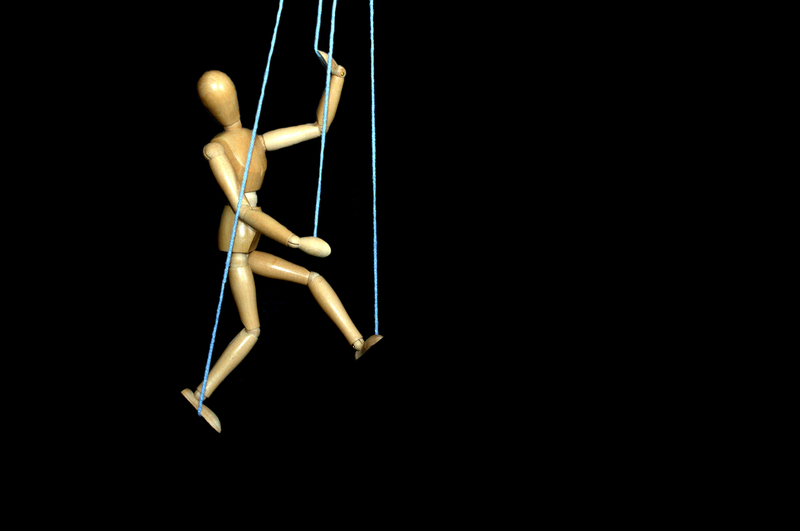Stop Micromanaging People and Write a New Story Using Archetypal Energies

Once upon a time, there was a leader who couldn’t stop micromanaging people. This story is familiar to all of us because it is archetypal. We have all been there!
When the outcome matters a great deal, any of us can get caught in the trap of worrying too much and starting to micromanage others. We micromanage children and spouses, employees, and coworkers, and those who have joined a team of people determined to serve the community in some way. We step into the role of leader and become too concerned with every little detail of the work to be done. Passion for excellence can become mingled with fear about not having control over the process or the outcome. When that happens, we may start micromanaging other people. The results are hurt feelings, resentment, and quiet departures by those who aren’t willing to be micromanaged. Eventually, you find yourself standing alone.
In shamanism and in Jungian psychology, there’s an emphasis on identifying the energies that are influencing our decisions and actions and working with them effectively to bring about changes that can include healing. A group of people in disharmony or turmoil is sharing a story of imbalance and hurt. Each of the individuals in the group can take a leadership role in bringing balance and harmony to the group. To do this, micromanagement has to be replaced with a more balanced way of managing and directing others. That requires identifying and redirecting energies influencing the group’s story. Otherwise, people will get stuck in stories called, “We’re rearranging deck chairs on the Titanic,” “Rats jumping off the sinking ship,” “Nothing ever really changes around here,” or “Chasing after rainbows.” Any of these disempowering stories can come about as a result of micromanagement.
You can take the lead and write a new story for your group. First, what story do you wish to write? What story would others be willing to participate in? What about a story called “We have our differences, but we all get along?” or “Dissent makes us stronger?”
Second, look at how you may be micromanaging others. Do you have difficulty delegating tasks to others and allowing them to accomplish tasks in their own way on their own schedule? If so, why is that? Are you receiving signals that you are pushing too hard for control? Working with businesses and charities, I have often found that letting people go about working toward a goal in their own way leads to “good enough” results, or even results that are as good if not better than I had expected. Having autonomy matters a lot to most people. Being able to operate naturally, according to their own rhythms, following their own instincts and ideas, can be very inspiring to anyone. Of course, if a deadline or budget isn’t met, which may be a legitimate fear for you, there will be some challenges. You might have to take more control over the process, but not necessarily. Good communication with those you’re working with, and accepting different ways of getting from A to Z, can help you resist unnecessary micromanaging. It can also lead to “good enough” results and happier team members. Whether your team is your family, your coworkers, or a group of people you are working with to achieve a goal of service to the community, don’t assume your way is the only way.
To micromanage is to put too much energy into trying to control others down to the last, small detail instead of into working with them more productively. The problem may simply be that you need to examine your fears about letting go of control. It may be that you’re working with an archetypal energy that is inappropriate for the situation. It may be both. If you are working with the Warrior energy and battling the people you need to work with and not against, you might want to bring in a more playful or cooperative energy to fuel your work. You may want to dialogue with the Warrior energy to learn what it has to teach you about working with it effectively. Maybe you need to direct that energy to a different battle, such as a battle against your fear of being judged or shamed.
To dialogue with the Warrior or any other archetypal energy that may be influencing you and causing you to micromanage others, sit and close your eyes, focus on your breathing, and open yourself up to experiencing the energy. Internally, ask the question, “What do I need to know about micromanaging others?” Pay attention to any images, sensations, emotions, words, or knowledge that arise within you. You can then ask this energy other questions, engaging in a back and forth dialogue. Listen to the answers, and observe any changes in what you are experiencing. The dialogue may become detailed, or it may be very simple, as your unconscious mind reveals to you a simple answer. By remaining still and focused on the image, word, or sensation, you may find that a richer answer reveals itself. Don’t try to micromanage the experience of querying your unconscious mind, where archetypal energies influence your thoughts, feelings, and decisions. Simply consult with it so that you can take advantage of its wisdom and guidance. Work with archetypal energy in this way, and you will find you have greater control over how it influences your choices and actions.
Sometimes, we don’t recognize what archetypal energies are influencing us until we encounter them through meditation, dreams, visions, shamanic journeying, Jungian active imagination, or other ways of encountering what is hidden from the conscious mind. These energies have many names but are often familiar characters such as a Warrior, Orphan Child, Empress, Clown, Mother, or Father. They have many aspects and much wisdom to share if you are willing to engage them in dialogue. (I explain the process of dialoguing in my book Change Your Story, Change Your Life.)
Are there archetypal energies influencing your desire to micromanage others? How might you work with those energies so that you stop micromanaging people, start allowing others more autonomy, and bring about greater harmony within the group? What archetypal energies might help you to write a new story that doesn’t involve micromanagement?

Carl
Carl Greer, PhD, PsyD, is a retired clinical psychologist and Jungian analyst, a businessman, and a shamanic practitioner, author, and philanthropist funding over 60 charities and more than 850 past and current Greer Scholars. He has taught at the C.G. Jung Institute of Chicago and been on staff at the Replogle Center for Counseling and Well-Being.
Sign up for announcements
Receive the latest announcements from Carl Greer and a FREE e-Book: 8 Steps to Change Your Life by Creating a New Story.
Subscribe by May 15, 2022 for a chance to win a FREE copy of any of Carl’s three books! (U.S. and Canada only)
